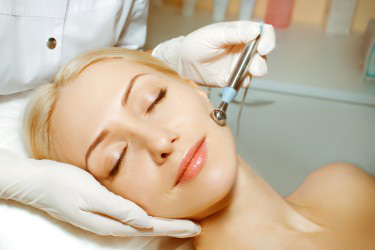
What are cosmeceuticals?
Cosmeceuticals is a portmanteau word for products that combine the effects of both cosmetics and pharmaceuticals. These products claim a wide range of skin care benefits, such as anti-aging, anti-wrinkle and firming effects, in addition to cosmetic functions.
Cosmeceuticals are becoming more common and more widely used in the UK, but its important to be cautious when opting to use them. Dr Conal Perrett, a Consultant Dermatologist with many years experience of medical and cosmetic dermatology offers only those cosmeceutical treatments that have a good reputation and that are likely to benefit your skin.
Are cosmeceuticals regulated?
Cosmeceuticals are not regulated in the same way as mainstream drugs or medical treatments, and they do not have to undergo a programme of rigorous testing before they are approved for use. As long as the product is not marketed as a pharmaceutical, it does not need approval by the health authorities.
However, any claims made by cosmeceuticals must be backed up by strong clinical or scientific evidence. In the UK, the Advertising Standards Authority will carefully check the legitimacy of any claims before allowing advertising or marketing to go ahead. If a product makes a medical claim that cannot be substantiated, or which is not backed by a reliable, scientific study using a large enough sample, then the ASA can ask for the ad to be removed.
To avoid such action, comeceutical advertising often makes vague or unspecific claims, using language that is hard to quantify or disprove. These claims are often related to the success of a proportion of a relatively small sample. (eg “8 out of 10 women said they felt their skin looked younger” – referring to just 68 out of 85 women).
Do cosmeceuticals work?
Cosmeceuticals contain a variety of chemicals with known skin health benefits. These include:
- Vitamin C and E – for sun protection and anti-oxidant properties
- Coenzyme Q10 – to prevent free radical damage and rejuvenate your skin
- Peptides – to promote collagen production and firm the skin
- Retinoids – to rejuvenate skin and inhibit the skin ageing process
- Retinols – to clean and maintain the skin
- Hyaluronic acid – to boost skin volume
However, it is important to remember that many high street cosmeceuticals, especially those at the cheaper and of the scale, generally do not contain enough of these active ingredients to make any significant difference to your skin. Even the really expensive creams and lotions, with high concentrations of the active ingredients, will not match the quality or potency of products that you will obtain through treatment with one of our medical dermatologists.
Taking care with cosmeceuticals
Top of the range cosmeceuticals often cost a lot of money for a very little jar, so you should take great care when choosing these products. Always read the small print, check the evidence that the claims are based on and stick to reputable brands with a well established track record in skin care science.
Alternatively, you can just let your cosmetics be cosmetics and leave your skin care in the fully qualified and highly experienced hands of your dermatologist.